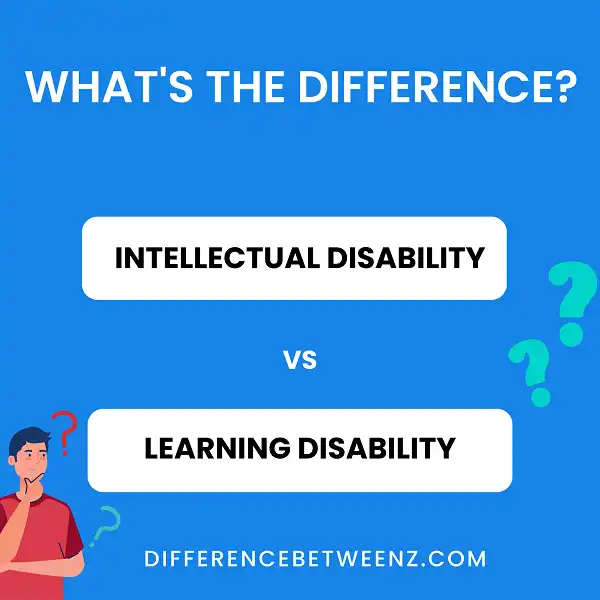Intellectual disability and learning disability are two different conditions, but they are often confused with one another. While both disabilities affect a person’s ability to learn, intellectual disability is a more severe condition that impacts other areas of a person’s life, such as their physical abilities and communication skills. Learning disability, on the other hand, refers to difficulties in specific academic areas, such as reading or writing. If you or someone you know is struggling with learning, it’s important to understand the difference between intellectual disability and learning disability in order to get the right support.
What is Intellectual Disability?
- Intellectual disability is a condition characterized by significant difficulties in learning and processing information. Intellectual disability can have a number of causes, including genetic conditions, birth defects, and brain damage.
- Intellectual disability can range from mild to severe, and it can impact a person’s ability to communicate, care for themselves, and interact with others. People with intellectual disabilities often require special education and support services in order to lead fulfilling lives.
- Intellectual disability is not a mental illness, and it is not curable. However, with the right support in place, people with intellectual disabilities can lead happy and fulfilling lives.
What is a Learning Disability?
- A learning disability is a neurological disorder that affects a person’s ability to process and respond to information. Learning disabilities can Affect a Person’s ability to read, write, speak, spell, and do the math.
- A learning disability can also affect a person’s ability to remember, organize, and pay attention. People with learning disability usually have a hard time with one or more of these skills.
- Most people with a learning disability have a normal IQ. A learning disability is not a disease and it cannot be cured. However, with proper diagnosis and treatment, most people with a learning disability can lead happy and successful lives.
Difference between Intellectual Disability and Learning Disability
Intellectual Disability (ID) and Learning Disability (LD) are two separate conditions that can sometimes be confused.
- Intellectual Disability is a condition that is present from birth or early childhood, and it affects a person’s ability to learn and understand new information. It can also lead to difficulties with social skills, communication, and self-care.
- LD, on the other hand, is a neurological disorder that affects a person’s ability to process information. It can make it difficult to learn new things, remember information, and/or perform certain tasks.
- LD does not affect intelligence or IQ, but it can make it harder for a person to reach their full potential.
While ID and LD both have lifelong effects, people with LD often have higher IQs and greater potential for academic achievement than those with ID.
Conclusion
Intellectual disability and learning disability are two different types of disabilities. Intellectual disability is a developmental disorder that affects cognitive ability while learning disability is a neurological disorder that affects the way someone learns. Both conditions require specialized care and support, but they can be treated in different ways.
If you’re not sure which type of disability your child has, it’s important to seek out professional help from a doctor or specialist who can give you an accurate diagnosis. With the right treatment and support, both intellectual disability and learning disability can lead to happy and productive lives for children and their families.


